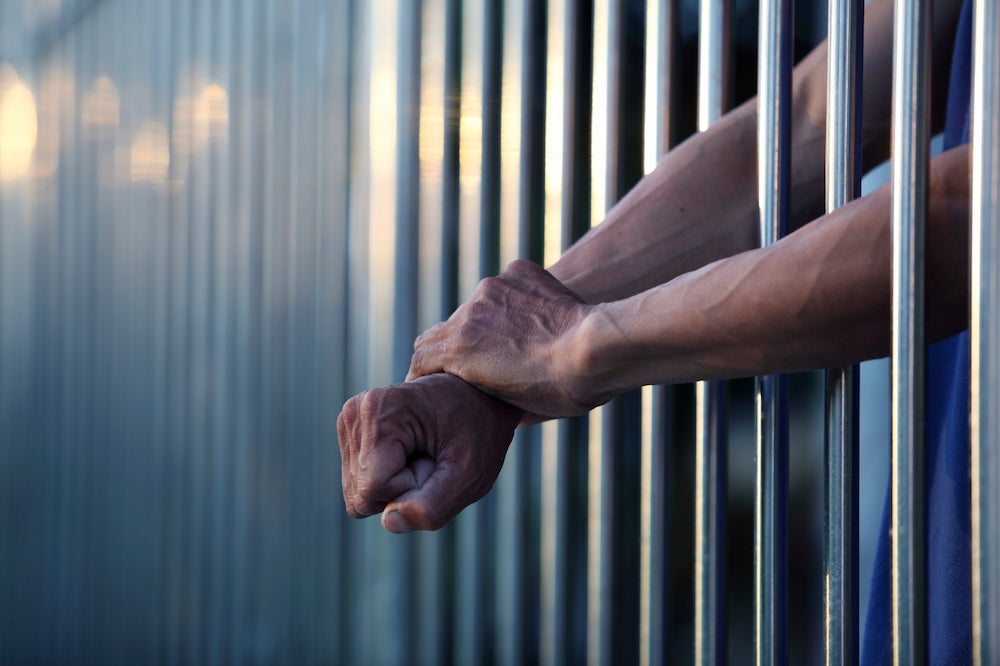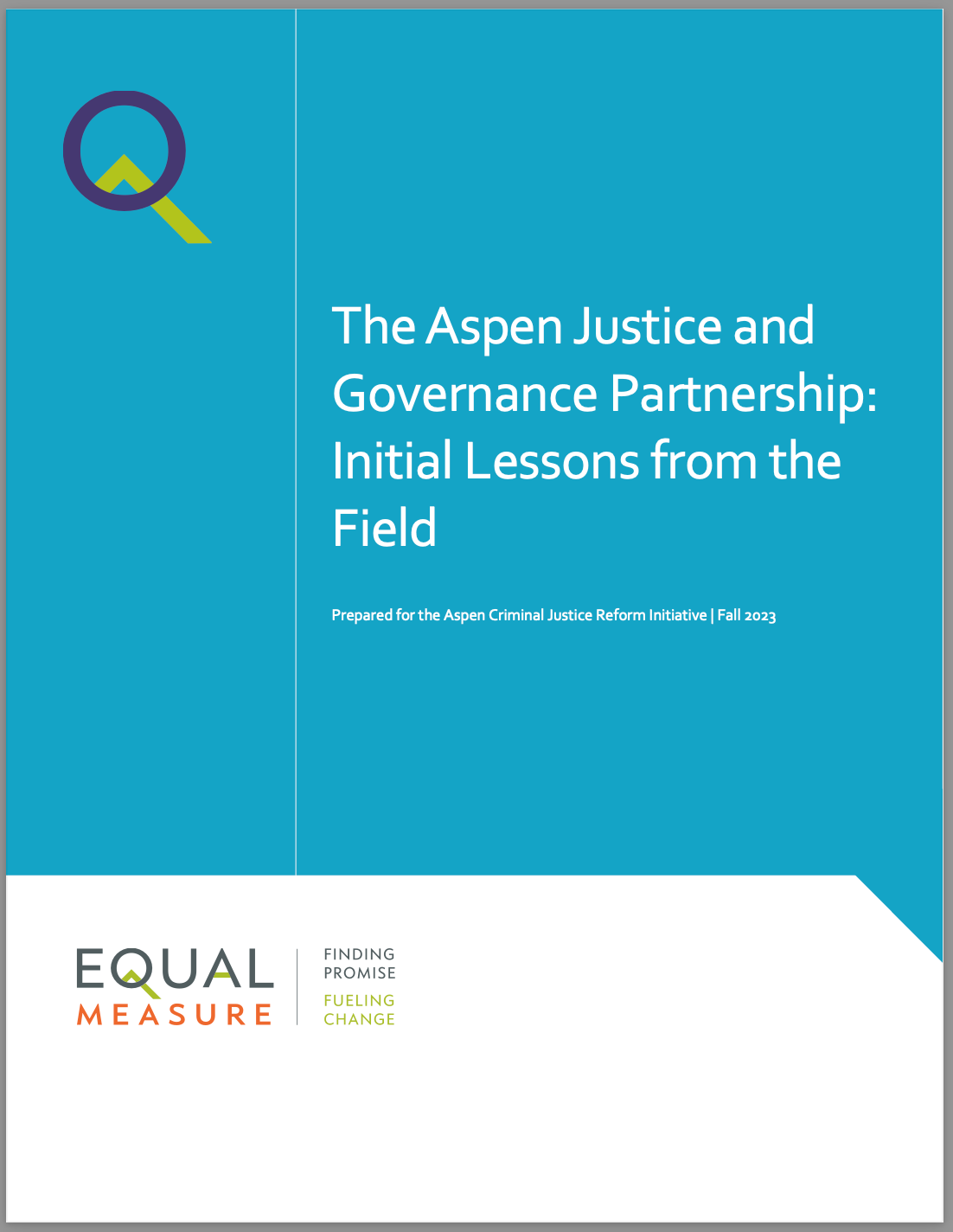Watch video highlights from the related event “Unlocking Communities: Ending Mass Incarceration in America.”
The Aspen Forum for Community Solutions, the Center for Community Change, the My Brother’s Keeper Alliance, and the Vera Institute of Justice recently held an event called “Unlocking Communities: Ending Mass Incarceration in America” featuring in-depth conversation on the mass incarceration crisis (watch our YouTube playlist of the videos from this event).
Below, My Brother’s Keeper Alliance members Scott Budnick and Shawn Dove explain why now is the time to address the incarceration crisis.
The path to prison does not begin the moment a crime is committed. For boys and young men of color, the risk of incarceration exists at nearly every stage of life. For example, in some school districts, high school dropout rates are as high as 50 percent for these young men; those dropouts are 47 times more likely to be incarcerated than their same-age peers who hold a four-year college degree. Yet our national discourse has not met the growing need to change how we talk about those who live behind bars — and how we as a nation have failed them.
Nearly 2.3 million Americans are currently in prison, and the Prison Policy Initiative reports that nearly 80 percent of them are black and Latino males — despite making up only 15 percent of the US population. We are at a pivotal moment at which issues of race and criminal justice are inextricably linked in recent headlines. Upon examining the stories of Trayvon Martin, Michael Brown, or Freddie Gray, and the nameless, faceless young men who don’t make the headlines, one can see that during these young men’s tragically short lifetimes, they were at risk of imprisonment at nearly any moment.
It is in our interest as a nation not only to prevent heartbreaking deaths like these in the future, but also to develop a holistic approach to improving the lives of millions of young men just like them. Incarceration is a symptom of a larger disease that is prevalent both before and after arrest and imprisonment occur. Our collective efforts must begin in early childhood, upon entering school, and continue through adolescence to first see these young men as the true assets to this nation that they are and then to support their completion of advanced education, and on through their successful entry into the workforce.
This brings us to what we can do to get there. My Brother’s Keeper Alliance, a non-profit that we are both heavily involved in, aims to close numerous achievement gaps and disparities in opportunity for boys and young men of color through partnerships with both the private and public sectors. While the Alliance focuses on these supports and interventions from cradle to career, one key recommendation within our larger approach includes offering a second chance to those who have been imprisoned. That will mean providing guidelines to businesses on attracting, hiring, and training boys and young men who are at risk of imprisonment or recidivism.

Photo Credit | iStock Photo
We will seek the support of the business community to make the rate of imprisonment commensurate with the crimes that are allegedly committed. This will drive the incarceration rate among this population down below the current national average and will ultimately impact 25,000 lives in the process.
These interventions and supports also foster improvement within our nation’s larger economic landscape and social structures. Closing racially-divided income gaps could boost the GDP by up to $2.1 trillion. Improved racial inclusion would boost financial performance in every region of the country, with estimated metro GDP gains ranging from $287 million to $510 billion per year.
Needless to say, mass incarceration is about much more than dollars and cents. We must focus our efforts on understanding and alleviating the circumstances that bring people — particularly young people of color – to imprisonment, and the circumstances they too often face after their time is served.
As described by Charlene Sinclair of the Poverty Initiative during a recent event at the Aspen Institute titled “Unlocking Communities: Ending Mass Incarceration in America,” “We need an economy that’s built on flourishing people.” In other words, we need an economy that provides equal opportunity for all rather than one that varies based on the circumstances into which an individual is born.
At the launch of My Brother’s Keeper Alliance on May 4th, President Barack Obama said it best: “What it comes down to is whether we love these kids. Beyond the dollar amounts and statistics, we risk losing out on the incredible potential of those that may not have been set up for success, or have made a mistake along the way.”
Today, we have a timely opportunity to address the issue of mass incarceration and the critical role of race in our incarcerated population and prison system at large. We must maximize this historic moment in our nation to shift the discourse and resources toward what we must do to prevent and rectify this systemic plague.
That work must begin with each of us believing that we are, in fact, our brothers’ keepers.
Scott Budnick is the founder and president of the Anti-Recidivism Coalition in Los Angeles and a film producer. He sits on the California Board of State and Community Corrections, California Community Colleges Board of Governors, and is an Advisory Council member for My Brother’s Keeper Alliance.
Shawn Dove serves on the MBK Alliance Advisory Council and is the CEO of the Campaign for Black Male Achievement, a national membership network that seeks to ensure the growth, sustainability, and impact of leaders and organizations committed to improving the life outcomes of black men and boys.

